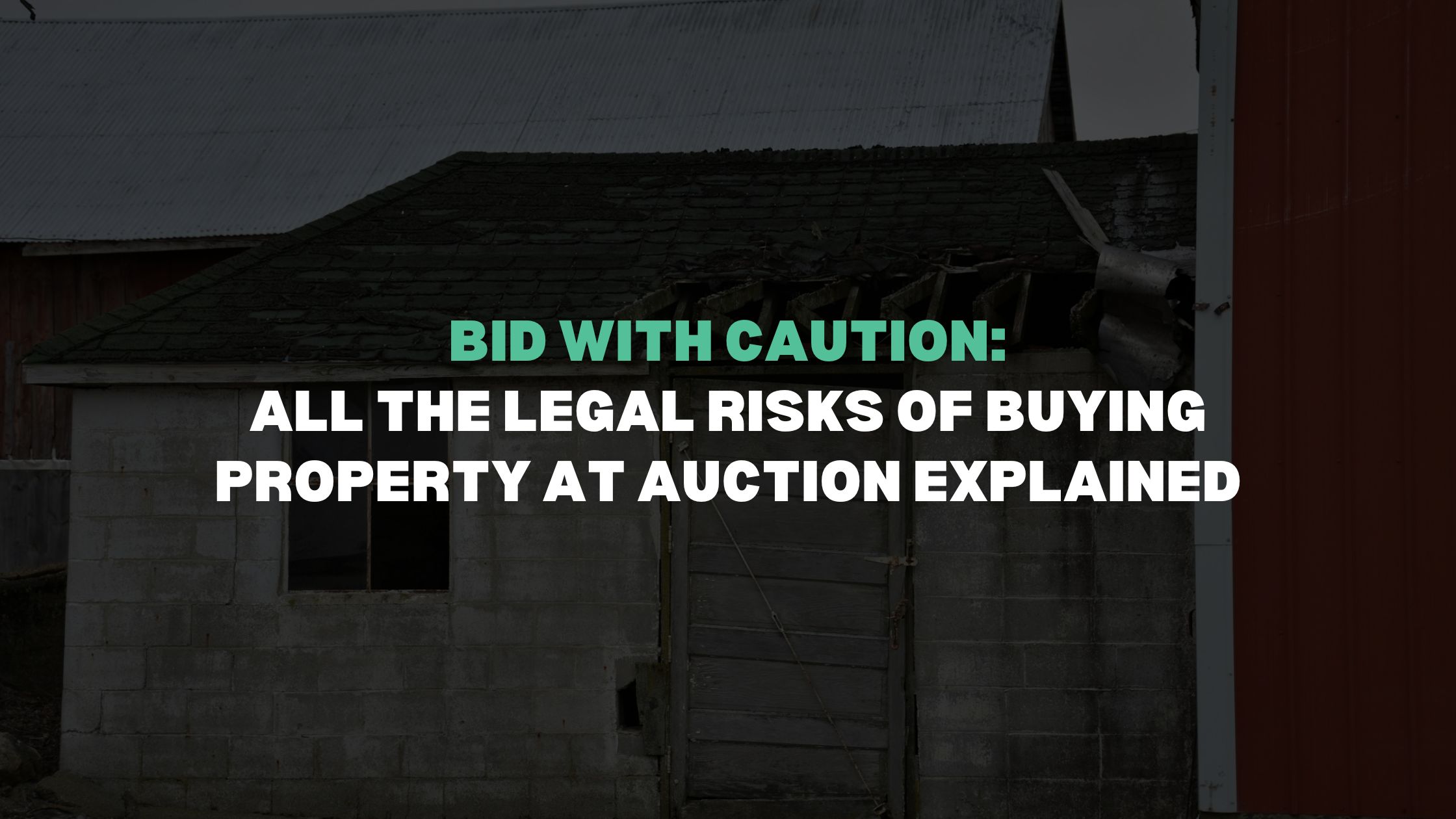It’s fast. It’s final. It’s legally binding. Buying a house at auction can be thrilling, but it’s also riddled with risk.
A young Sydney couple recently lost their $120,000 deposit after placing the winning bid at auction, only to have their finance fall through a week later. The seller kept the deposit. The couple? No home and no legal recourse.
This real-life scenario isn’t rare. With rising interest rates and tightening credit conditions, more buyers are learning the hard way that auctions leave no room for error. Unlike private sales, auctions are a high-stakes legal process, one where preparation isn’t optional, it’s everything.
What Makes Auctions So Risky?
The defining feature of buying at auction is this: there is no cooling-off period. Once the auctioneer’s hammer falls, the contract becomes immediately and unconditionally binding. That means:
- You must sign the contract and pay the deposit (usually 10%) on the spot.
- There’s no backing out if your loan approval falls through.
- There’s no protection if building defects or legal issues emerge post-auction.
In other words, the moment you win, you’re locked in, regardless of what you might discover later.
Top Legal Risks Every Buyer Should Know
1. No Finance Clause
Unlike private sales, auction contracts do not contain a “subject to finance” clause. Even if you have pre-approval, your bank can still deny your loan after auction day, particularly if the property is later valued below your winning bid. If this happens, you risk:
- Losing your full deposit
- Being sued for breach of contract
- Owing damages to the seller, including legal fees or lost resale value
2. Binding Without Review
You can’t negotiate contract terms after the auction. Sellers often include special conditions in the contract to protect themselves, extended settlement periods, penalty clauses, or disclaimers for known issues. If you don’t review and negotiate these beforehand, you’re stuck with them.
3. Undiscovered Defects or Legal Issues
The legal principle of “buyer beware” applies. That means you purchase the property “as is.” If you skip building, pest, or strata inspections, you may inherit:
- Structural issues
- Undisclosed unauthorised works
- Strata levies, defects, or disputes
There is little to no legal remedy if these aren’t discovered before auction day.
4. Deposit Problems
You’ll need to pay the deposit immediately. If you need to negotiate a smaller deposit (e.g. 5%) or use a deposit bond instead of cash, this must be arranged well before the auction. You won’t have a chance to ask for changes after you win.
Due Diligence: Your Legal Safety Net
To mitigate risk, your due diligence must be complete before auction day. That means:
- Engage a solicitor or conveyancer early to review and negotiate the contract
- Obtain a pest and building inspection, or a strata report for apartments
- Get formal loan approval (not just pre-approval) specific to the property
- Confirm your deposit method and daily transfer limits with your bank
- Set a hard bidding limit and stick to it
Legal Tip: The Makita Standard
Any advice you receive, particularly around inspections or risk assessments, should meet the evidentiary standards laid out in Makita v Sprowles [2001] NSWCA 305. This case clarified that expert opinions must be based on sound methodology. If you’re relying on professionals, make sure their work can stand up to scrutiny.
What If the Property Doesn’t Sell?
If bidding doesn’t meet the seller’s reserve, the property may “pass in.” The highest bidder is usually offered first rights to negotiate, but often still under auction conditions, meaning no cooling-off.
Final Thoughts: Buy With Your Head, Not Just Your Heart
The high-pressure environment of auctions is designed to drive up emotion and bids. But sentiment doesn’t hold up in court. A winning bid made in haste can cost you hundreds of thousands in losses.
Buying a home at auction can be a smart move, if you’re fully prepared. Without legal foresight, it can also be a financial trap.
Need Legal Eyes on Your Auction Contract?
At Green & Associates, we specialise in identifying red flags before they cost you. If you’re considering buying at auction, our experienced property team can review your contract, help you secure your rights, and bid with confidence.
Contact us for strategic pre-auction legal advice that protects your investment from day one.




